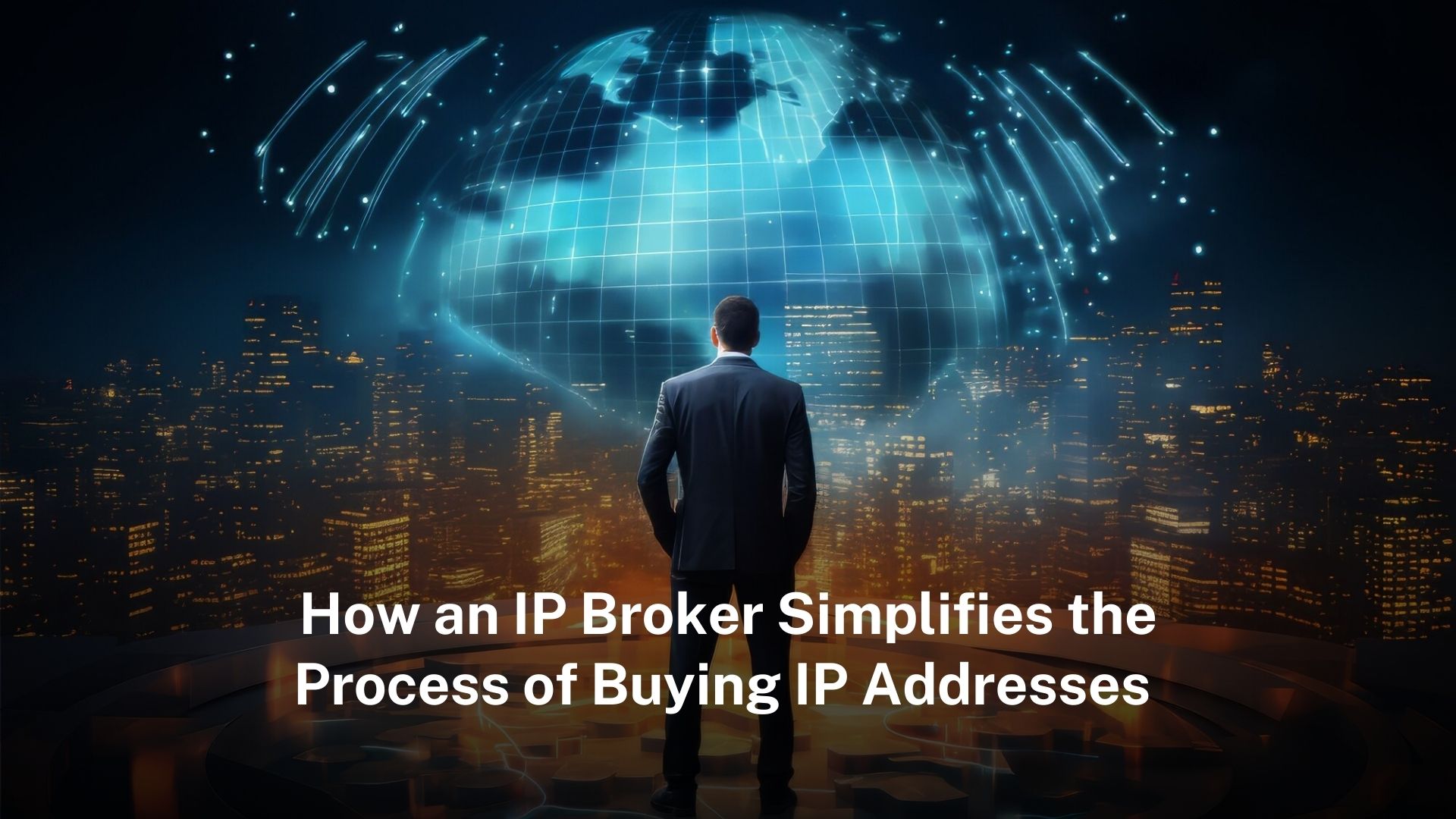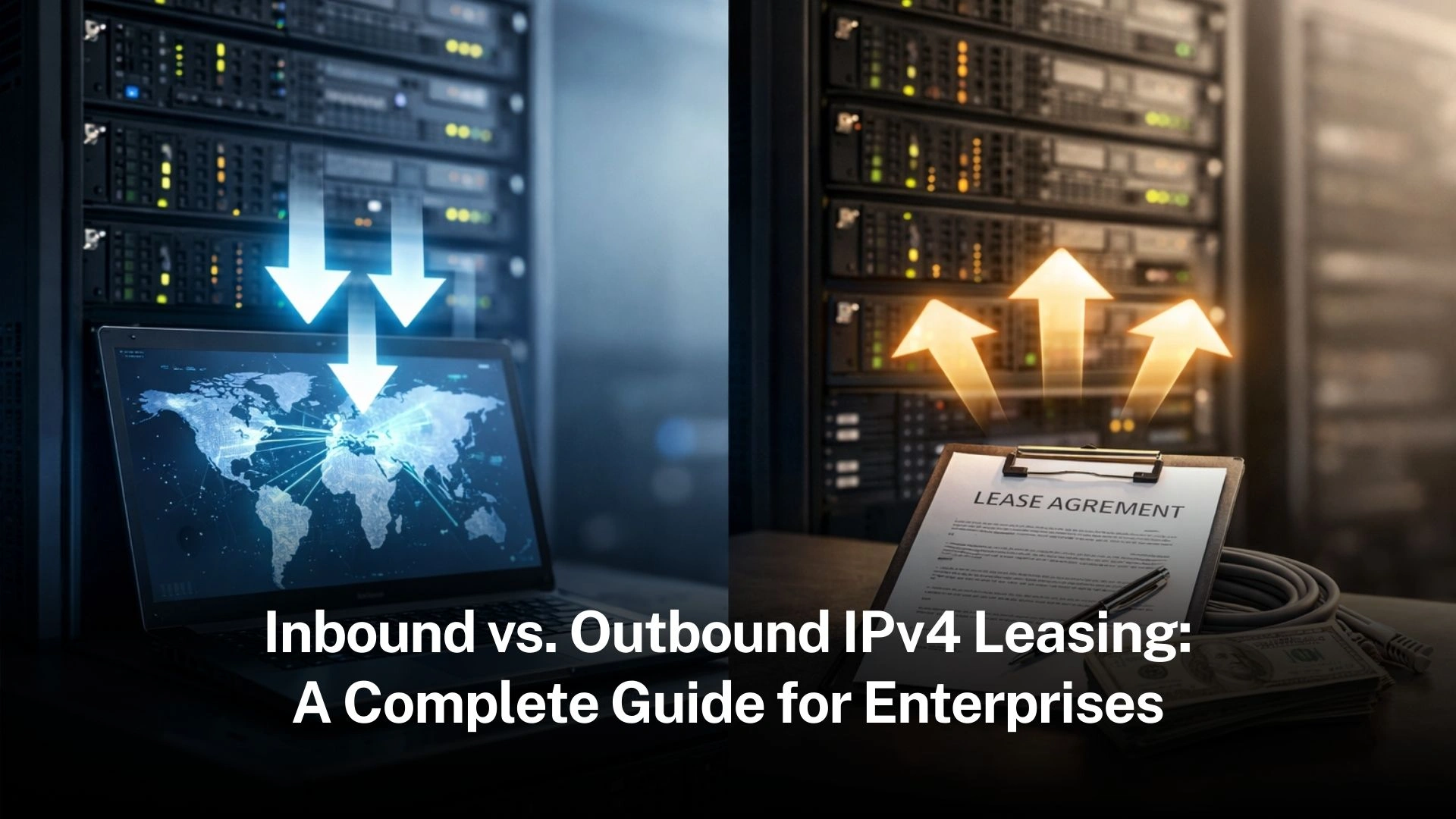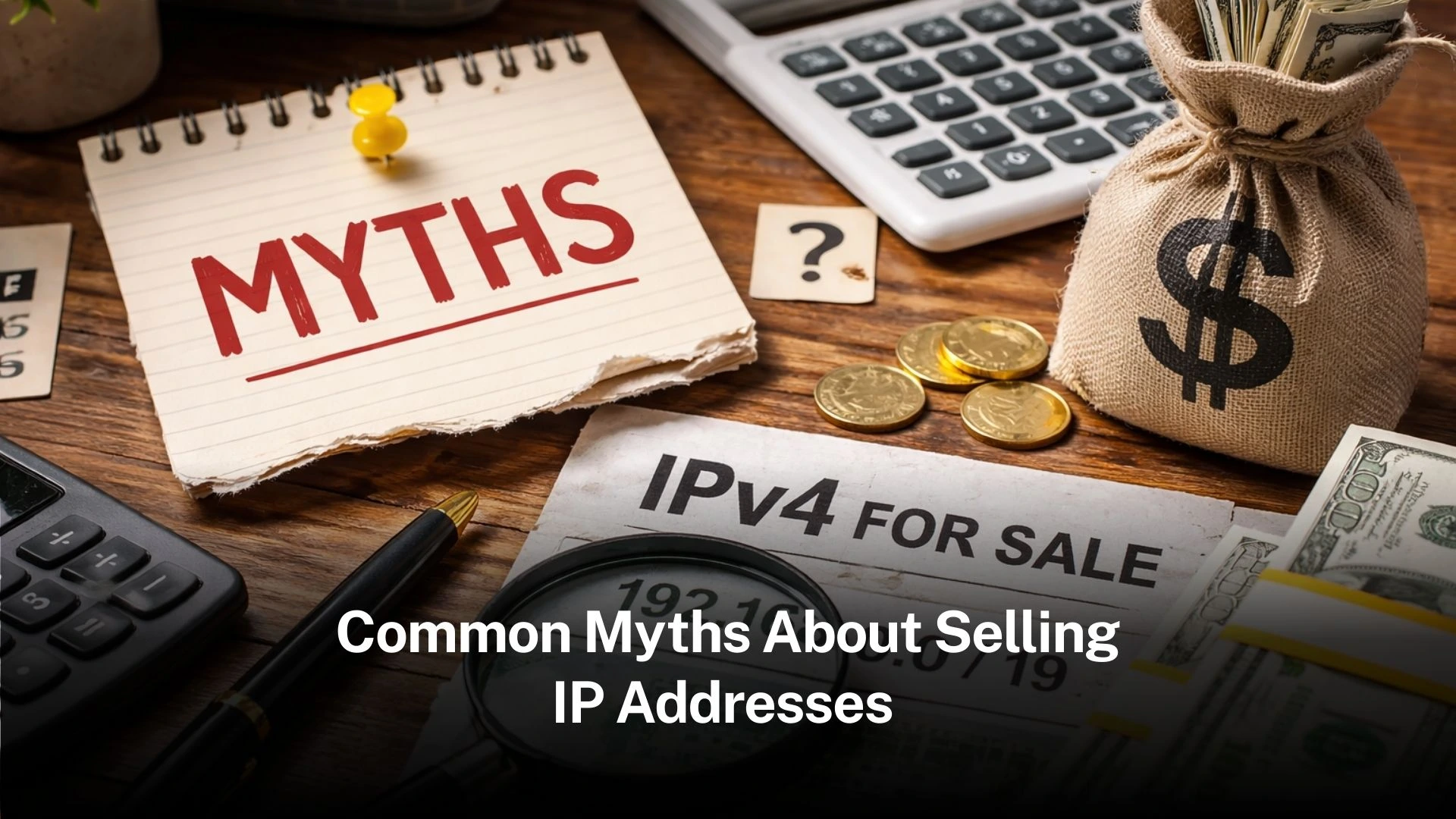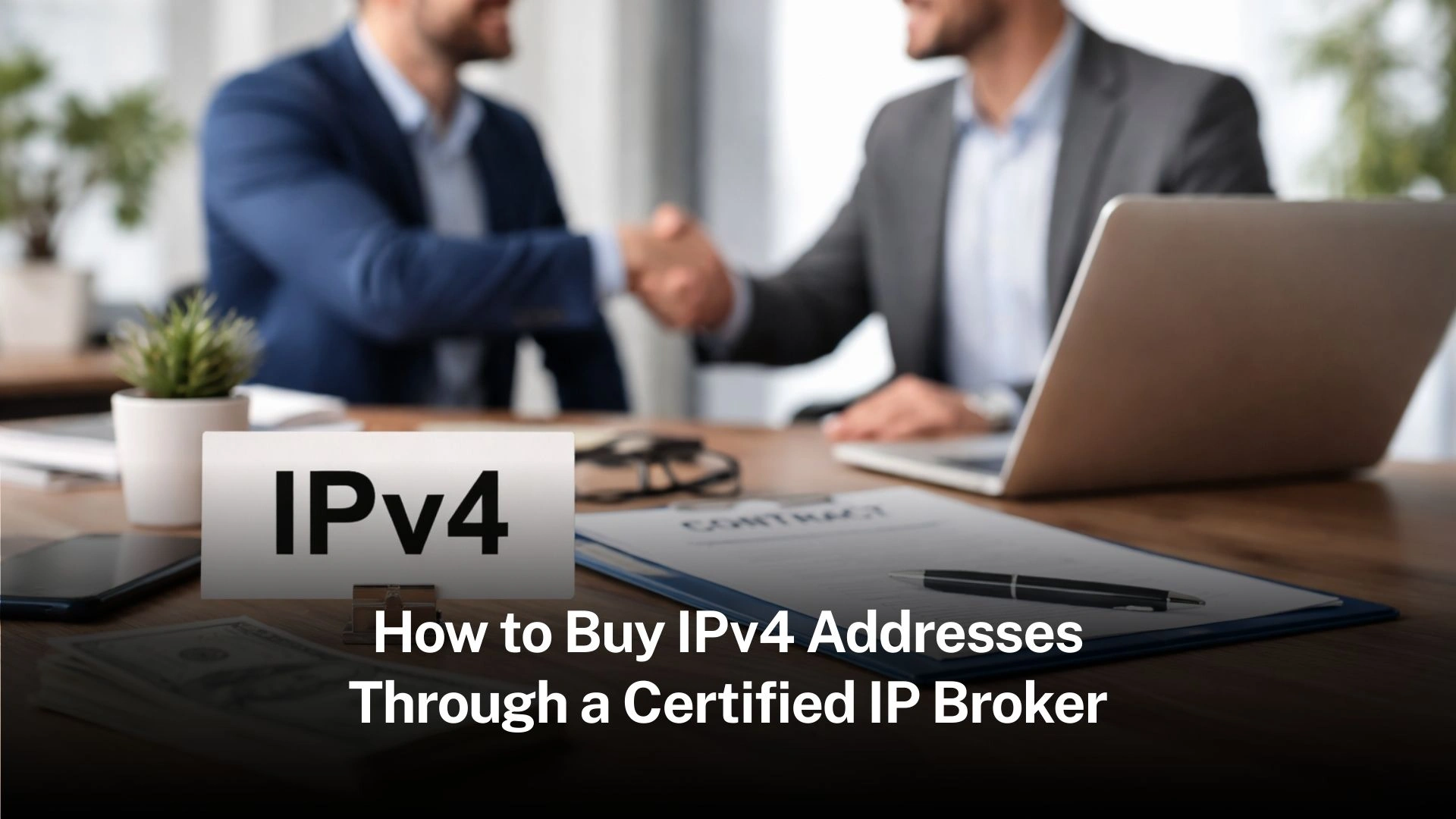How an IP broker simplifies the process of buying IP addresses

Get IP addresses has become an increasingly difficult endeavour in the digital world of today, especially when IPv4 addresses are running low. Industries looking for opportunities to expand their network infrastructure constantly must negotiate an intricate framework of legal, regulatory, and technological challenges.
Table of Contents
As a way to expedite the acquisition process, IP brokers act as intermediary firms in that scenario. Their knowledge and assistance are crucial in making sure business enterprises can effectively and legally find all they need intellectual property resources.
Understanding the Role of IP Brokers
An IP broker functions as an interface for buyers and sellers of IP addresses, specifically IPv4 addresses. They are well-versed in the regulations of Regional Internet Registries (RIRs) as ARIN, RIPE, and APNIC, and they are a detailed understanding of the IP address market. Brokers make it easier to buy, sell, or lend IP addresses by utilising their knowledge, guaranteeing that transactions are completed efficiently and in accordance with any and all relevant regulations.
An IP broker’s obligations go beyond simple facilitation; they also give clients advice on strategy with guiding them in figuring out pricing strategies, market trends, and the accessibility of IP resources. For business enterprises looking to make well-informed decisions about intellectual property demands this data can be essential.Additionally, brokers help their clients by managing the transfer process, draughting contracts, and negotiating terms, which lessens the administrative load on them.
The Complexities of Acquiring IP Addresses
The process of obtaining IP addresses is not simple. Prices have gone up and competition has increased as a result of IPv4 address depletion. When trying to obtain IP addresses directly from RIRs, businesses are often faced with long waiting times and strict requirements. Technical elements to the process additionally include guaranteeing the IP addresses are clean (i.e., not blacklisted) and that they conform to the pertinent RIR’s policies.
The acquisition process is made even more difficult by potential legal ramifications. The terms and conditions established by RIRs must be followed by both buyers and sellers, and may include demonstrating the validity of IP address ownership and providing evidence of the need for extra resources. Transactions may be delayed or even penalised for noncompliance with these rules.
How IP Brokers Simplify the Acquisition Process
IP brokers use their established networks and industry knowledge to streamline the acquisition process. Because they have access to a large number of IP addresses, there is a greater chance that they will find options that are appropriate for the buyer’s needs. Additionally, because of their existing connections with RIRs, brokers are able to expedite the approval process and more effectively navigate the regulatory environment.
Brokers also carry out extensive due diligence to guarantee that the IP addresses are clean and in accordance with RIR regulations. This lowers the possibility of obtaining troublesome IP addresses that might cause interruptions in business operations or harm to one’s reputation. Brokers free companies from the complexities of intellectual property acquisition by managing the legal and technical issues, allowing them to concentrate on their core competencies.
The Benefits of Working with an IP Broker
Many various benefits to joining forces with an IP broker. First of it all, brokers give people access to more IP address choices, including ones that might not be easily accessible through normal channels. They also use their connections with sellers and market expertise to provide competitive pricing. In order for sure that both parties are happy with the transaction, brokers also help deal favourable terms and conditions.
Additionally, brokers provide post-transaction support, supporting incorporate purchased IP addresses into the buyer’s network infrastructure. This all-inclusive service reduces possible disruptions and guarantees a seamless change. In general, utilising an IP broker can result in decreased costs, less risk, and a quicker acquisition process.
Choosing the Right IP Broker
A successful acquisition requires choosing a reliable IP broker. When assessing viable brokers, take into consideration things like their reputation, track record with effective transactions, and industry experience. It’s also significant that you evaluate their grasp of specific demands of your company and your ability to deliver adjusted solutions. Another significant aspect to take note of is pricing and service transparency, since unclear clauses or hidden costs can cause confusion and concerns.
Take notice of the broker’s degree of customer service as well. Throughout the acquisition analyse, a responsive and informed support staff can offer valuable help by resolving whatever possible problems or concerns. You can increase your chance of a successful and intuitive IP address acquisition by carefully choosing a broker who participates the goals and values of the organisation you represent.
Choosing the Right IP Broker
A successful acquisition requires choosing a reliable IP broker. When assessing viable brokers, take into consideration things like their reputation, track record with effective transactions, and industry experience. It’s also significant that you evaluate their grasp of specific demands of your company and your ability to deliver adjusted solutions. Another significant aspect to take note of is pricing and service transparency, since unclear clauses or hidden costs can cause confusion and concerns.
Take notice of the broker’s degree of customer service as well. Throughout the acquisition analyse, a responsive and informed support staff can offer valuable help by resolving whatever possible problems or concerns. You can increase your chance of a successful and intuitive IP address acquisition by carefully choosing a broker who participates the goals and values of the organisation you represent.
Future Trends in the IP Address Market
As more devices connect to the internet, it is anticipated that the demand for IP addresses will only increase. Due to the limited supply of IPv4 addresses and the growing demand, prices will probably rise and competition will get more fierce. IP brokers will therefore play an even more crucial role in assisting companies in navigating this changing environment.
In future generations, the pressure on the IPv4 market could be potentially lessened by the application of IPv6 addresses. Even so, IPv4 addresses are expected to be in demand for a brief time to come, and switching to IPv6 is an impossible and gradual process. In this case, IP brokers stay essential in helping companies find IP addresses, maintaining that they will get the resources called for to function properly in the digital era.
Negotiation and Pricing Strategies
IP brokers serve as crucial in negotiating IP address fees, which could vary extensively with respect to location, block size, and demand. Brokers use an awareness of recent sales, market trends, and buyer needs to secure fair pricing in the competitive IPv4 market. They might provide clientele direction on when to buy to get the best deal and how to prepare the payments so that both buyers and sellers are happy.
Brokers regularly offer strategic suggestions on portfolio management in beside negotiating. Regular IP address buyers might need continuing advice on how to split larger allocations, boost usage, or integrate smaller blocks to suit their needs. Brokers help businesses make well-informed, financially actions by offering insights into market timing, anticipated future demand, and potential regulatory changes. This continuous support guarantees that IP assets are properly controlled and that businesses steer clear of consequently expenses.
Due Diligence and Risk Management
Carrying out due diligence to avoid prospective problems after acquisition is an essential aspect of an IP broker’s job. They assure that IP addresses are legitimately owned, see if they have ever been blacklisted or used maliciously, and make sure RIR policies are being afterwards. Buyers can steer clear of legal complications, problems with service, and reputational hazards with this thorough examination.
Providing clients advice on whether to buy or renting is another aspect of risk management. Brokers assess the cost-benefit of various acquisition strategies, the projected growth, and the network requirements of the business being acquired. Leasing IP addresses can offer elasticity to business enterprises with limited time or tight budgets while still adhering to legal requirements. Brokers regulate these intricate assessments thereby opening up businesses from concentrating on their core competencies, lower risk, and make calculated investments in digital infrastructure.
Trusted IPv4 Leasing for Business Growth
Get enterprise-grade IPv4 space quickly, with seamless deployment and end-to-end management.
Get Started with i.leaseFAQs
What is an IP broker and what do they do?
An IP broker helps buy, sell, or lease IP addresses. They check rules, verify addresses, handle agreements, and manage technical steps.
Why use an IP broker instead of getting addresses directly?
Getting addresses directly is hard. There are strict rules and long waits. Brokers give access, check addresses, follow rules, and get better deals.
Can brokers help with IPv6 addresses?
Yes. Some brokers work with IPv6. They give advice and help get addresses for future growth.
How long does it take to get addresses through a broker?
Time depends on availability, complexity, and approvals. Brokers often complete it in a few weeks.
What risks exist without a broker?
Without a broker, buyers can get blacklisted addresses, break rules, or face delays. Brokers check addresses and handle the process safely.
Related Blogs
Related Posts

Inbound vs. Outbound IPv4 Leasing: A Complete Guide for Enterprises
Understanding IPv4 leasing helps enterprises manage scarce address space, reducing risk and unlocking strategic growth opportunities in today’s digital economy. Key points Distinguishes between inbound (leasing in) and outbound (leasing out) IPv4 approaches and their strategic implications. Highlights contract structures, registry risk management and continuity considerations affecting global number resources. Inbound vs. outbound IPv4 leasing: complete enterprise guide In the post-exhaustion era of Internet Protocol version 4 (IPv4),Read more Related Posts Inbound vs. Outbound IPv4 Leasing: A Complete Guide for Enterprises Understanding IPv4 leasing helps enterprises manage scarce address space, reducing risk and unlocking strategic growth opportunities in today’s digital economy. Key Read more Common Myths About Selling IP Addresses The IPv4 secondary market is often shrouded in mystery, leading many organizations to sit on valuable digital assets because they Read more How to turn idle IPv4 addresses into a recurring revenue stream with iLease Unlock the hidden value of unused IPv4 addresses with iLease, turning dormant digital infrastructure into a recurring revenue stream while Read more .related-post {} .related-post .post-list { text-align: left; } .related-post .post-list .item { margin: 5px; padding: 10px; } .related-post .headline { font-size: 18px !important; color: #999999 !important; } .related-post .post-list .item .post_thumb { max-height: 220px; margin: 10px 0px; padding: 0px; display: block; } .related-post .post-list .item .post_title { font-size: 16px; color: #3f3f3f; margin: 10px 0px; padding: 0px; display: block; text-decoration: none; } .related-post .post-list .item .post_excerpt { font-size: 13px; color: #3f3f3f; margin: 10px 0px; padding: 0px; display: block; text-decoration: none; } @media only screen and (min-width: 1024px) { .related-post .post-list .item { width: 30%; } } @media only screen and (min-width: 768px) and (max-width: 1023px) { .related-post .post-list .item { width: 90%; } } @media only screen and (min-width: 0px) and (max-width: 767px) { .related-post .post-list .item { width: 90%; } }

Common Myths About Selling IP Addresses
The IPv4 secondary market is often shrouded in mystery, leading many organizations to sit on valuable digital assets because they fear the perceived complexity or legal “gray areas.” As IPv4 exhaustion becomes a permanent reality, the value of these addresses has skyrocketed, yet misconceptions continue to stall potential transactions. At i.lease, powered by the real-world expertise of LARUS, we’ve seen how these myths prevent companies from unlocking significant capital.Read more Related Posts Inbound vs. Outbound IPv4 Leasing: A Complete Guide for Enterprises Understanding IPv4 leasing helps enterprises manage scarce address space, reducing risk and unlocking strategic growth opportunities in today’s digital economy. Key Read more Common Myths About Selling IP Addresses The IPv4 secondary market is often shrouded in mystery, leading many organizations to sit on valuable digital assets because they Read more How to turn idle IPv4 addresses into a recurring revenue stream with iLease Unlock the hidden value of unused IPv4 addresses with iLease, turning dormant digital infrastructure into a recurring revenue stream while Read more .related-post {} .related-post .post-list { text-align: left; } .related-post .post-list .item { margin: 5px; padding: 10px; } .related-post .headline { font-size: 18px !important; color: #999999 !important; } .related-post .post-list .item .post_thumb { max-height: 220px; margin: 10px 0px; padding: 0px; display: block; } .related-post .post-list .item .post_title { font-size: 16px; color: #3f3f3f; margin: 10px 0px; padding: 0px; display: block; text-decoration: none; } .related-post .post-list .item .post_excerpt { font-size: 13px; color: #3f3f3f; margin: 10px 0px; padding: 0px; display: block; text-decoration: none; } @media only screen and (min-width: 1024px) { .related-post .post-list .item { width: 30%; } } @media only screen and (min-width: 768px) and (max-width: 1023px) { .related-post .post-list .item { width: 90%; } } @media only screen and (min-width: 0px) and (max-width: 767px) { .related-post .post-list .item { width: 90%; } }

How to buy IPv4 addresses through a certified IP broker
Buying IPv4 space requires policy compliance, verified need, and registry approval, making certified IP brokers essential guides through complex global transfers. IPv4 transactions are regulated transfers, not simple purchases — registries must approve documentation, justification and registration changes. Certified brokers reduce risk and delay by aligning buyers with registry policy, routing legitimacy and cross-region requirements. Why companies still need to buy IPv4 addresses The global supply of IPv4 addressesRead more Related Posts Inbound vs. Outbound IPv4 Leasing: A Complete Guide for Enterprises Understanding IPv4 leasing helps enterprises manage scarce address space, reducing risk and unlocking strategic growth opportunities in today’s digital economy. Key Read more Common Myths About Selling IP Addresses The IPv4 secondary market is often shrouded in mystery, leading many organizations to sit on valuable digital assets because they Read more How to turn idle IPv4 addresses into a recurring revenue stream with iLease Unlock the hidden value of unused IPv4 addresses with iLease, turning dormant digital infrastructure into a recurring revenue stream while Read more .related-post {} .related-post .post-list { text-align: left; } .related-post .post-list .item { margin: 5px; padding: 10px; } .related-post .headline { font-size: 18px !important; color: #999999 !important; } .related-post .post-list .item .post_thumb { max-height: 220px; margin: 10px 0px; padding: 0px; display: block; } .related-post .post-list .item .post_title { font-size: 16px; color: #3f3f3f; margin: 10px 0px; padding: 0px; display: block; text-decoration: none; } .related-post .post-list .item .post_excerpt { font-size: 13px; color: #3f3f3f; margin: 10px 0px; padding: 0px; display: block; text-decoration: none; } @media only screen and (min-width: 1024px) { .related-post .post-list .item { width: 30%; } } @media only screen and (min-width: 768px) and (max-width: 1023px) { .related-post .post-list .item { width: 90%; } } @media only screen and (min-width: 0px) and (max-width: 767px) { .related-post .post-list .item { width: 90%; } }